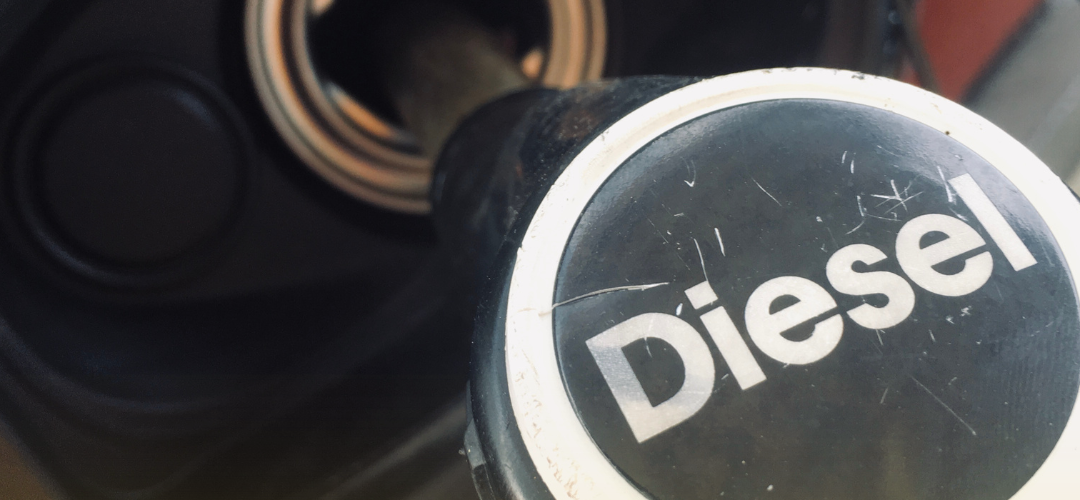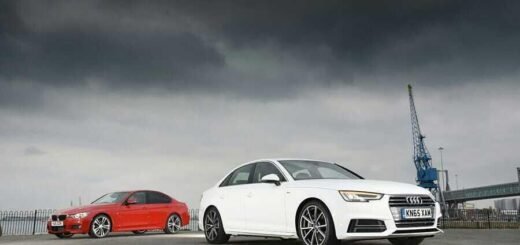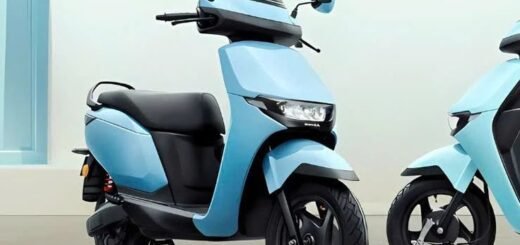Is the Era of Diesel Cars About to End?

The automotive industry is undergoing a significant transformation, driven by advancements in technology, changing consumer preferences, and increasing environmental concerns. Among the most notable shifts is the declining prominence of diesel-powered vehicles. Once lauded for their fuel efficiency and performance, diesel cars are now facing mounting scrutiny and challenges that could herald the end of their era. This detailed article explores the various factors contributing to the potential decline of diesel cars and examines what the future holds for the automotive industry.
The Rise of Diesel Cars
Diesel engines have a long history, dating back to their invention by Rudolf Diesel in the late 19th century. Diesel engines became popular in the automotive industry, especially in Europe, due to their superior fuel efficiency and torque compared to gasoline engines. For decades, diesel cars were favored for their ability to cover long distances with better mileage and lower CO2 emissions, which contributed to their widespread adoption.
Advantages of Diesel Cars
Fuel Efficiency: Diesel engines typically offer better fuel economy than gasoline engines, making them ideal for long-distance driving and reducing overall fuel costs.
Torque and Performance: Diesel engines provide higher torque at lower RPMs, which translates to better acceleration and towing capacity.
Durability: Diesel engines are known for their robust construction and longevity, often outlasting their gasoline counterparts.
Lower CO2 Emissions: Diesel engines generally produce less CO2 per kilometer than gasoline engines, contributing to reduced greenhouse gas emissions.
The Downfall of Diesel Cars
Despite their advantages, diesel cars have come under intense scrutiny in recent years due to several key factors:
- Environmental Concerns
NOx and Particulate Emissions: While diesel engines produce less CO2, they emit higher levels of nitrogen oxides (NOx) and particulate matter (PM). These pollutants have significant health impacts, contributing to respiratory problems and other illnesses. The growing awareness of air quality issues has led to stricter emissions regulations and increased pressure on the automotive industry to reduce diesel emissions.
Dieselgate Scandal: The Volkswagen emissions scandal, also known as Dieselgate, exposed the extent to which some manufacturers manipulated emissions tests to meet regulatory standards. This scandal not only damaged the reputation of diesel cars but also prompted stricter regulatory scrutiny and testing procedures worldwide.
- Stringent Emissions Regulations
Governments around the world are implementing stricter emissions standards to combat air pollution and mitigate climate change. In Europe, the Euro 6d and upcoming Euro 7 standards impose stringent limits on NOx and PM emissions from diesel vehicles. Meeting these standards requires expensive and complex emissions control technologies, making diesel cars less economically viable for manufacturers and consumers. - Advancements in Alternative Technologies
Electric Vehicles (EVs): The rapid advancement of electric vehicle technology has provided a compelling alternative to diesel cars. EVs offer zero tailpipe emissions, reducing the environmental impact of personal transportation. Improvements in battery technology, increased driving ranges, and expanding charging infrastructure have made EVs more accessible and practical for consumers.
Hybrid Vehicles: Hybrid vehicles, which combine internal combustion engines with electric motors, offer a transitional solution by reducing fuel consumption and emissions. Plug-in hybrids (PHEVs) allow for short trips on electric power alone, further decreasing reliance on diesel fuel.
- Changing Consumer Preferences
Consumers are increasingly prioritizing sustainability and environmental responsibility in their purchasing decisions. The growing awareness of climate change and air pollution has led many to reconsider the environmental impact of their vehicles. As a result, there is a noticeable shift towards greener alternatives such as EVs and hybrids. - Economic Factors
The cost of diesel fuel, along with the rising costs associated with emissions control technologies, has made diesel cars less attractive from a financial perspective. Additionally, government incentives and subsidies for electric and hybrid vehicles have made these alternatives more financially appealing to consumers.
The Current State of Diesel Cars
Despite the challenges, diesel cars still hold a significant market share, particularly in Europe. According to the European Automobile Manufacturers Association (ACEA), diesel cars accounted for around 28% of new car registrations in the EU in 2020, down from over 50% in 2015. This decline reflects the growing impact of the factors mentioned above.
The Future of Diesel Cars
- Market Decline
The market share of diesel cars is expected to continue declining as consumers and manufacturers shift towards more sustainable alternatives. Governments are increasingly implementing measures to phase out diesel vehicles, such as low-emission zones, diesel bans in urban areas, and higher taxes on diesel fuel. - Technological Innovations
While the future may seem bleak for traditional diesel cars, ongoing technological innovations could extend the viability of diesel engines in certain segments. Advanced emissions control technologies, such as selective catalytic reduction (SCR) and particulate filters, can significantly reduce NOx and PM emissions. Additionally, the development of synthetic and renewable diesel fuels could provide a cleaner alternative to conventional diesel. - The Role of Commercial Vehicles
Diesel engines are still prevalent in the commercial vehicle sector, including trucks, buses, and construction equipment. The high torque and fuel efficiency of diesel engines make them suitable for heavy-duty applications. However, this sector is also undergoing a transformation with the advent of electric and hydrogen-powered commercial vehicles.
The Case for Diesel Hybrids
Diesel hybrid vehicles, which combine diesel engines with electric powertrains, offer a potential solution to bridge the gap between traditional diesel and fully electric vehicles. These hybrids can reduce fuel consumption and emissions while maintaining the advantages of diesel engines, such as high torque and long driving ranges. However, the complexity and cost of diesel hybrid systems may limit their widespread adoption.
Government Policies and Incentives
Government policies and incentives play a crucial role in shaping the future of diesel cars. Many countries are implementing ambitious targets to phase out internal combustion engines and promote the adoption of electric vehicles. For example:
Norway: Norway aims to ban the sale of new fossil fuel-powered cars by 2025, promoting the transition to electric vehicles.
United Kingdom: The UK plans to ban the sale of new petrol and diesel cars by 2030, with hybrid vehicles allowed until 2035.
Germany: Germany offers significant incentives for electric vehicle purchases, including subsidies and tax benefits, to encourage the shift away from diesel and petrol vehicles.
The Role of Automakers
Automakers are also adapting to the changing landscape by investing heavily in electric and hybrid technologies. Major manufacturers, including Volkswagen, BMW, and Mercedes-Benz, have announced ambitious plans to electrify their vehicle lineups and reduce their reliance on diesel engines. This shift in focus reflects the industry’s recognition of the need to align with environmental goals and consumer preferences.
Consumer Considerations
For consumers, the decision to purchase a diesel car in the current climate involves weighing several factors:
Environmental Impact: Consumers increasingly prioritize the environmental impact of their vehicles. Diesel cars, despite their fuel efficiency, produce higher levels of NOx and PM emissions compared to electric and hybrid alternatives.
Cost: The rising cost of diesel fuel, potential higher taxes, and the expense of advanced emissions control technologies make diesel cars less economically attractive.
Regulations: Stringent emissions regulations and potential bans on diesel vehicles in urban areas influence purchasing decisions, with consumers opting for vehicles that comply with future standards.
Resale Value: The declining popularity of diesel cars could impact their resale value, making them a less appealing long-term investment.
The Environmental Perspective
From an environmental perspective, the transition away from diesel cars is seen as a positive step towards reducing air pollution and mitigating climate change. The higher NOx and PM emissions from diesel engines have been linked to respiratory problems, cardiovascular diseases, and other health issues. Moving towards electric and hybrid vehicles can significantly reduce these harmful emissions, improving air quality and public health.
While it may be premature to declare the complete end of the diesel car era, the signs of its decline are evident. Environmental concerns, stringent regulations, advancements in alternative technologies, and changing consumer preferences are all contributing to the decreasing popularity of diesel vehicles. The automotive industry is undergoing a significant transformation, with a clear shift towards more sustainable and environmentally friendly options.
For consumers and manufacturers alike, the future lies in embracing cleaner technologies and adapting to the evolving landscape of personal and commercial transportation. Diesel cars, once the epitome of fuel efficiency and performance, are now being overshadowed by electric and hybrid alternatives that promise a greener and more sustainable future.
In conclusion, while diesel cars may not disappear overnight, their era is undoubtedly drawing to a close. The combination of environmental imperatives, regulatory pressures, and technological advancements is paving the way for a new generation of vehicles that prioritize sustainability, efficiency, and reduced emissions. As we move forward, the automotive industry will continue to innovate, ensuring that the transition to cleaner transportation is both seamless and beneficial for all.













